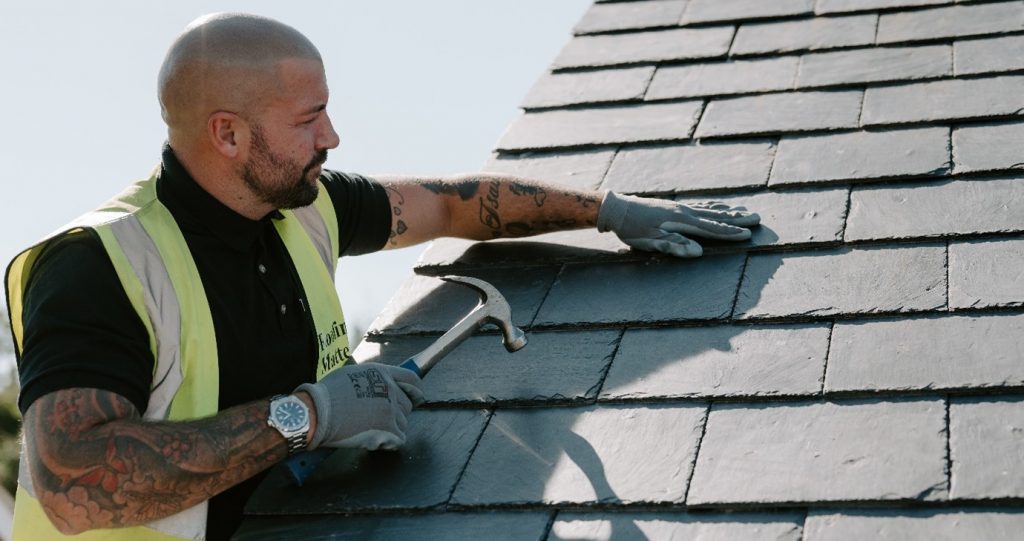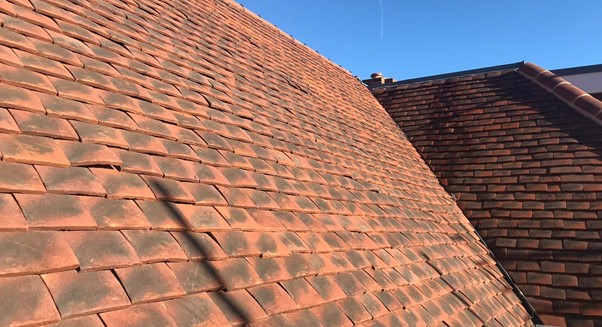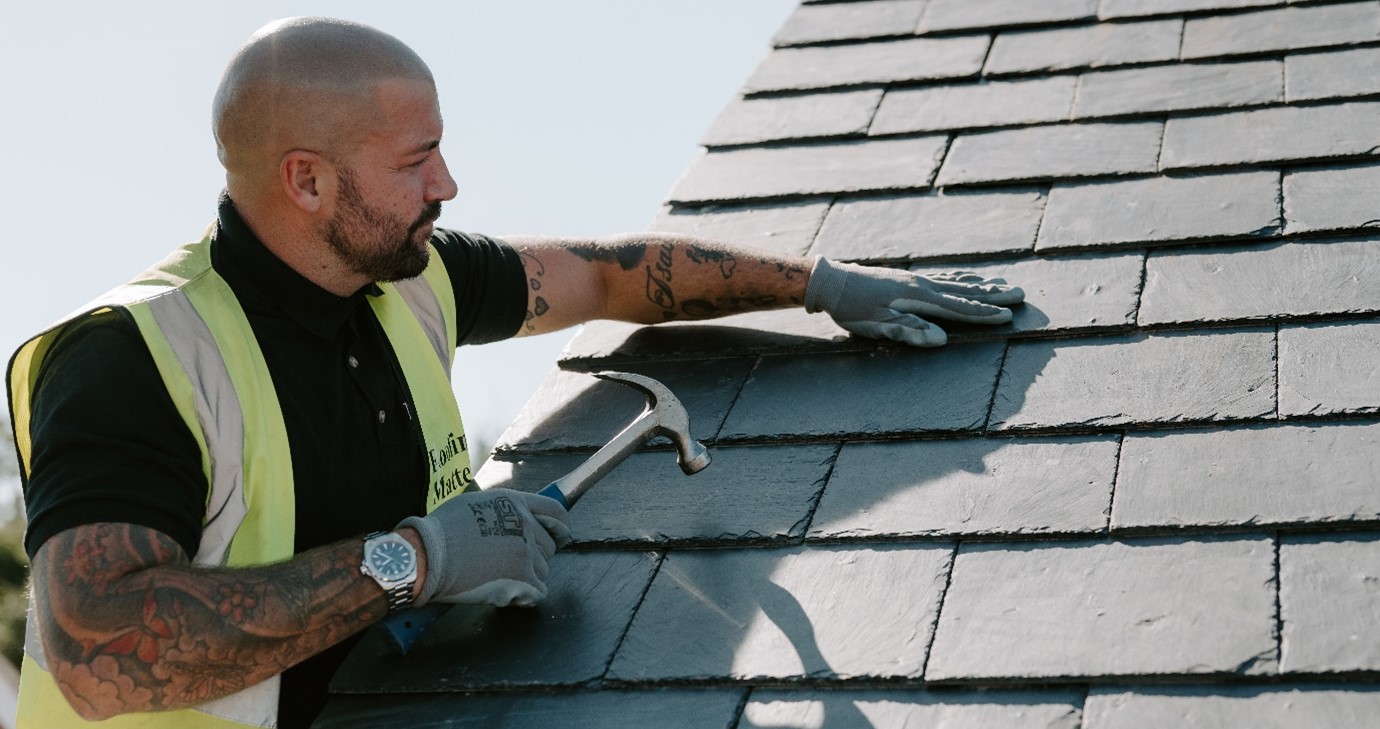Most tiled roofs typically last up to 20 years, the tiles will start to curl or crack, moss can start to grow and your roof can look old and worn. This is a sign to renew you roof. If you are looking for a new roof, our owner Daryl from Roofing Matters Group, who is a NVQ qualified slater and tiler, can provide you with a free quotation but first, lets look at the difference between slates and tiles to better understand which material to choose.
Natural Slate
Natural slate is what comes to most people’s minds when talking about slate roofs. This has an exceptionally long lifespan. With proper care and maintenance, a slate roof can last over 100 years.

Natural slate is one of the most eco-friendly roofing options available. Thanks to its long lifespan and with no manufacturing process involved. Discarded slate can also be repurposed in many ways. Slate tiles can come in a wide variety of colours. Depending on the source, you’ll find natural slate in shades of grey, blue and even red.
Fibre Cement Slate
Fibre cement slate is fast becoming a popular alternative to natural slate, thanks to its more attractive upfront cost. This comes in an even wider variety of colours, as well as custom formats such as diamond-shaped slate. It is also much lighter than natural slate and can be installed on existing roof decks without additional reinforcement.
It must be noted that fibre cement siding has about half the lifespan of natural slate but is still longer.
Bituminous Slate
Bituminous slate is closer in composition to common roofing tiles. After all, the main component of both materials is bitumen, otherwise known as asphalt. Both have similar expected life spans, maintenance requirements and installation processes. The main difference is in the outer layer whereas asphalt tiles have a rough, sandpaper-like feel, bituminous slate has a relatively smoother surface like natural slate. Unlike other slate options, bituminous slate is flexible and can be installed over dormers and domed roofs.
Tiles
Most commonly available tiles are in concrete and clay, roofing tiles come in a much wider variety of designs and colours than natural roofing slates. Good quality roofing tiles offer similar durability to slates with professional installation. However, concrete tiles are considered more weatherproof and able to withstand severe weather conditions.

(One of Roofing Matters Group’s customers tiled roof)
Clay tiles are used over concrete where finer roof additions need to be outlined such as chimneys and skylights or where structural support isn’t available or cannot be installed to withstand the weight of concrete tiles. Standard roofing tiles tend to be less costly than their slate equivalent, particularly if further structural support needs to be added.
The main disadvantage of tiles (in addition to the weight of concrete tiles) is the increased need to clean them of algae and moss, although this can also depend on your local climate and the chosen finish on your roofing tiles.
If you would like to get in contact with Roofing Matters Group, you can get in touch with the team here and they can arrange for Daryl, to provide you a free quotation.





